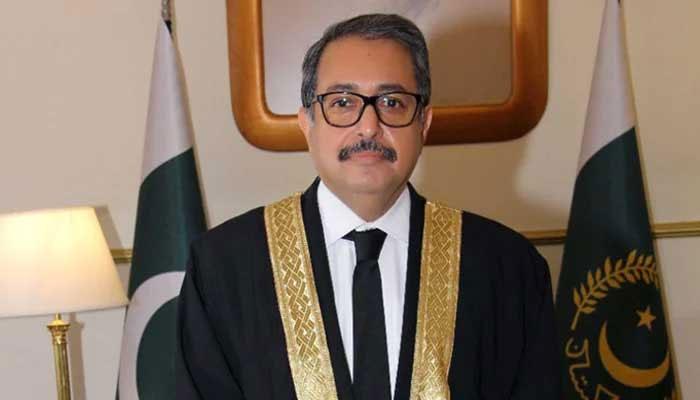ISLAMABAD: In a major judgment, the Islamabad High Court (IHC) rejected the claims that a new oath of truth is needed during the transfer, on the basis of the date of their initial truth.
The decision, issued by IHC Chief Justice Amar Farooq, underlines the constitutional rules that distinguish the appointment and transfers of judges.
Controversy arose following the transfer of three judges – Justice Sardar Muhammad Sarfraz Dogar, Justice Kadim Hussein Sumo and Justice Muhammad Asif to the IHC on February 1, 2025.
The judges previously served in the Lahore High Court, the Indus High Court and the High Court of Baluchistan respectively.
The transfer was implemented under Article 200 of the Constitution, which allows the President to change the judges between the High Courts with their approval and consulted with the Chief Justice of the Pakistan (CJP) and the Chief Justice of the High Courts.
Representation filed by Justice Mohdar Gayani, Justice Tariq Jahangiri, Justice Babar Sattar, Justice Sardar Ejaz and Justice Saman Rabad Imtiaz – under Section 194 of the IHC. Senior – Since the date of the Satyaprama, he will take the purposes of working in the High Court.
However, CJ Barok ruled that the Constitution did not force a new pledge to the changed judges. The elderly of the judges is determined by the date of their initial truth, not the exchange date or confirmation date.
“Transfer is not a new appointment, but simply the pledge of the judge continues and the pledge taken by the judge continues, and the elderly relocation he experienced because of his first truth,” the eight -sided order says the Chief Justice of the IHC.
This decision is in line with previous rulings, including the Pakistani Federation of Pakistan and the Muhammad Aslam Awakad Supreme Court and the Pakistani Federation, which confirmed that the elderly was based on the early truth.
The transfer of judges is a common practice in Pakistan and India, and that it is not equal to a new appointment.
In India, the transfer of judges is administered by Article 222 of the Indian Constitution, as well as the new oath is not required. The IHC decision strengthens the principle that the term of a judge is intact during the term of the term and the eternal transmission.
“After the transfer of the judges, the Constitution of the Articles of the Internet has been given a list of the elderly replaced elders in this court.
As a result of the verdict, the route for Justice Toger is taking over as the next Chief Justice of the IHC. The current CJ, Farooq, has been raised to the Supreme Court.
Judge Doger became a senior judge among IHC judges because he sworn in as an LHC judge in 2015.














